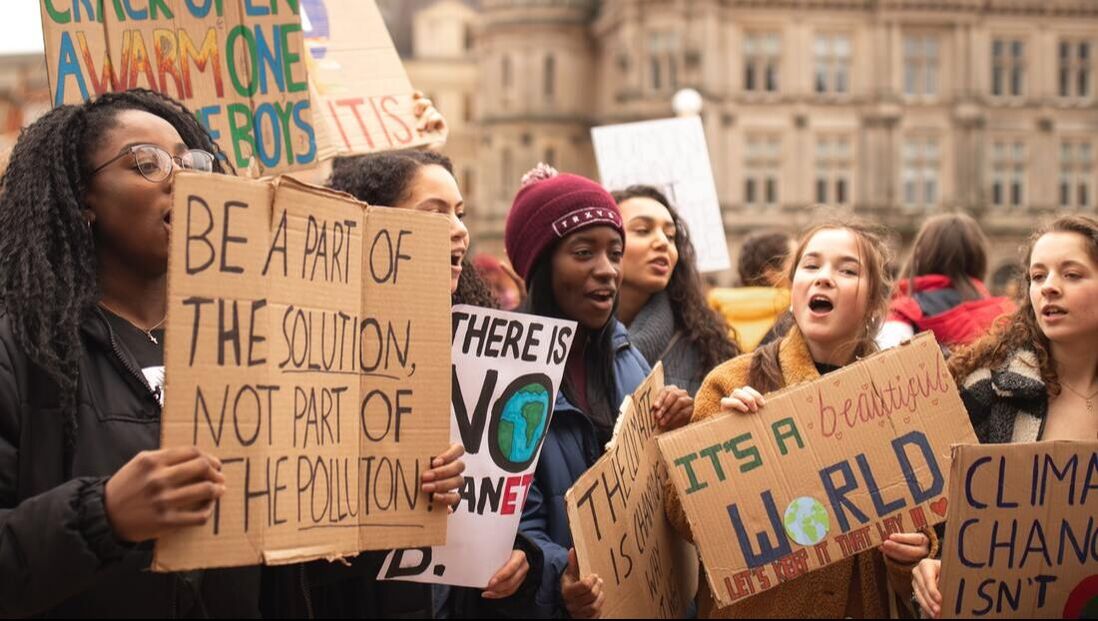|
This is the season when leaves turn orange and red. The air becomes delightfully crisp. And college administrators turn out to tell student political organizations that they cannot exercise their First Amendment right to advocate for political candidates in the upcoming election.
In this off-year election cycle, the director of student activities at Washington & Lee University told that school’s Young Republicans that they could not display campaign materials in support of Glenn Youngkin, the Republican candidate for governor. In 2016, administrators for the Georgetown University Law Center prevented a group of students supporting Sen. Bernie Sanders’ bid for the Democratic nomination for president from handing out campaign materials on campus. “The protection of political speech is at the very core of the purpose and meaning of the First Amendment,” said Bob Goodlatte, senior policy adviser to Protect The 1st and a graduate of Washington & Lee University law school. “Every college and university must have a keen recognition of this central truth of our system.” In these incidents, administrators incorrectly claim that the school’s tax-exempt status requires this limitation. And it does – for non-profit colleges and universities, and for administrators and faculty themselves when acting in their official capacities on behalf of or through their organizations. IRS Code § 501 (c) (3) requires tax-exempt organizations “not to participate in, or intervene in (including the publishing or distributing of statements), any political campaign on behalf of (or in opposition to) any candidate for public office.” But the language of the Internal Revenue Service is unequivocal regarding the rights of students to exercise political speech. For example, IRS code explicitly allows student newspapers to express political views. Even though the facilities for the newspaper are furnished by the university, the IRS recognizes that the educational mission of a university benefits from allowing student journalists to express their views on the issues and candidates of the day. Similarly, another rule allows political science courses to dispatch students to work on political campaigns as a part of their education. And there is no IRS prohibition against student political organizations from putting up booths and handing out literature for “Bernie,” “Glenn,” “Donald” or “Joe.” Washington & Lee’s own policy states: Student political organizations (College Republicans, Young Democrats, etc.) are not prohibited from pursuing their normal activities consistent with the academic nature of their endeavors. Washington & Lee requires such groups to pay the student organization rates for using institutional facilities and declare any appearance by a candidate for political office to be for “educational” purposes. And, of course, it would be a violation of the IRS code for a student group to undertake political activity at the behest of a college, its administrators or faculty. And even if at some future date the IRS code insisted that private universities suppress the independent political speech and association of its students, that would be such a severe restriction on freedom of speech that it is hard to imagine such a law or regulation surviving any level of constitutional scrutiny. “It is likely that Washington & Lee University will live up to its policies and ideals,” Goodlatte said. “The quest for political freedom on campus, however, is an ongoing struggle with students as well as administrators.” Last week, the student senate of Wichita State University denied the application of a student chapter, Turning Point USA, which advocates “principles of freedom, free markets and limited government.” The student senators voted 21-14 not to grant the club and its 165 members status as a student organization. As it turns out, however, there is a student supreme court on campus, which overturned the vote and allowed Turning Point to be recognized. That ruling cited the First Amendment and many clauses in the university’s Student Bill of Rights. (And while a state university is directly bound by the Fourteenth and First Amendments, the principle is the same regarding any supposed IRS compulsion for private universities: What government cannot do directly it cannot do as a condition of tax exempt status.) It is easy to see why some might be offended by Turning Point, whose slogan is “Socialism Sucks,” or partisans by Bernie Sanders, or by Glenn Youngkin. A 2017 poll of 1,500 undergraduates reported by the Brookings Institution shows that 51 percent of students believe they have a right to shout down controversial speakers. Nineteen percent believe that violence is justified. “Perhaps the continuing inability of students and administrators alike to respect or even understand the First Amendment may point to the deficiencies of not just higher education, but in what used to be called a civics education in high school,” Goodlatte said. Comments are closed.
|
Archives
June 2024
Categories
All
|
ABOUT |
ISSUES |
TAKE ACTION |



 RSS Feed
RSS Feed